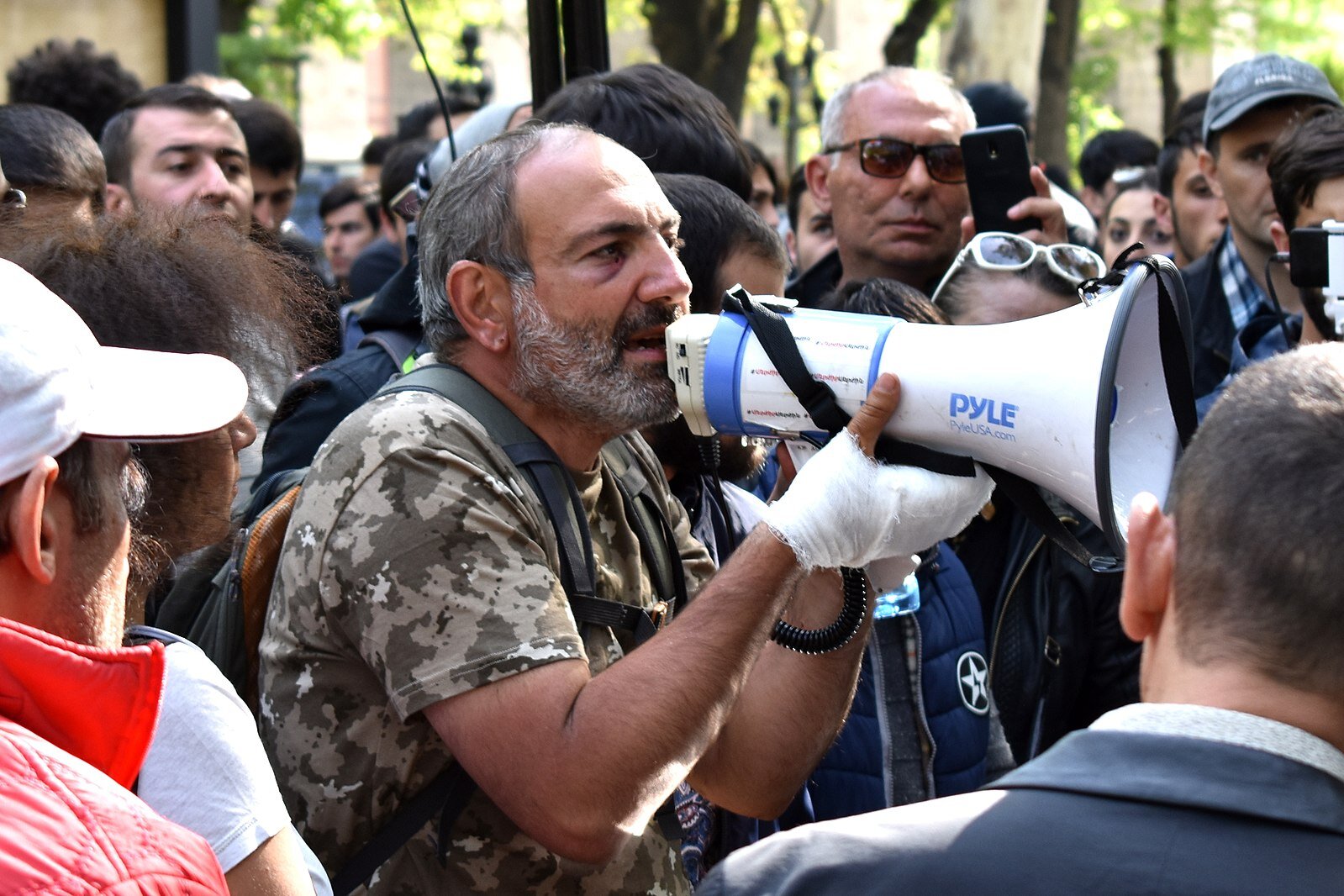Armenian Prime Minister Announces Early Resignation
Nikol Pashinian during the 2018 revolution in Armenia (Wikimedia Commons).
Armenian Prime Minister Nikol Pashinian announced on March 28 that he would resign in order for the country to hold parliamentary elections ahead of schedule. This decision follows widespread dissatisfaction with Pashinian in the wake of the Nagorno-Karabakh peace deal brokered last fall.
Pashinian announced on his Facebook page that he would resign “not to leave power, but to hold early parliamentary elections.” He hopes to resume his posting as prime minister. He added that he would continue to serve as the interim prime minister until the elections take place.
Pashinian has faced pressure to resign since signing a peace treaty with Azerbaijan on November 9, in which Armenia agreed to withdraw troops from Nagorno-Karabakh and allow Russian peacekeeping forces to replace them. Pashinian also conceded a route for Azerbaijan through Armenia to the Azerbaijani region of Nakhichevan.
Leaders signed the treaty without informing the Armenian public. Immediately after the announcement, thousands protested the decision. Many claimed that they felt betrayed by the decision, chanting “Nikol the Traitor.”
At the time, Pashinian refused to resign, claiming that the deal represented the best possible solution to end the conflict quickly.
In December, a coalition of 17 political parties nominated Vazgen Manukian, a former prime minister from the 1990s, to replace Pashinian. Additionally, the protesters issued an ultimatum to Pashinian, demanding that he step down before December 8.
Tensions in Armenia increased in late February when the Pashinian fired several high-level military officials and accused them of plotting a coup.
In an attempt to appease protesters, Pashinian announced at the beginning of March that Armenia would hold early elections on June 20.
Despite strong opposition to the brokered peace deal, Pashinian retains high popularity with parts of the population, and thousands have turned out for counter-protests to support him. His political faction, My Step, currently holds a 132-seat majority in the parliament.
Pashinian said in his Facebook speech that if the voters supported him again in the snap elections, he would continue to serve “better than before.” He added further that if the voters chose another candidate, he would engage in a peaceful transition of power.

